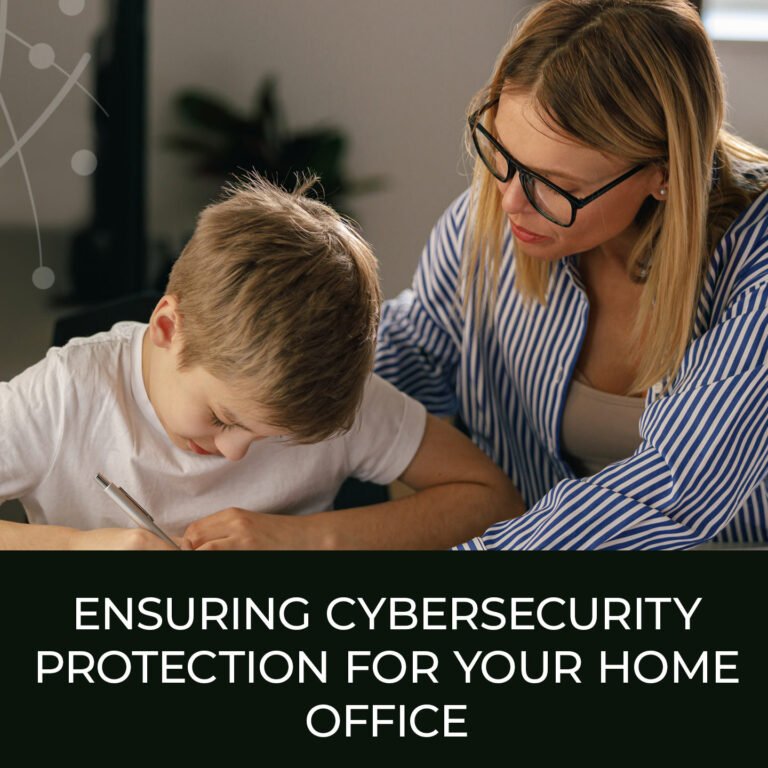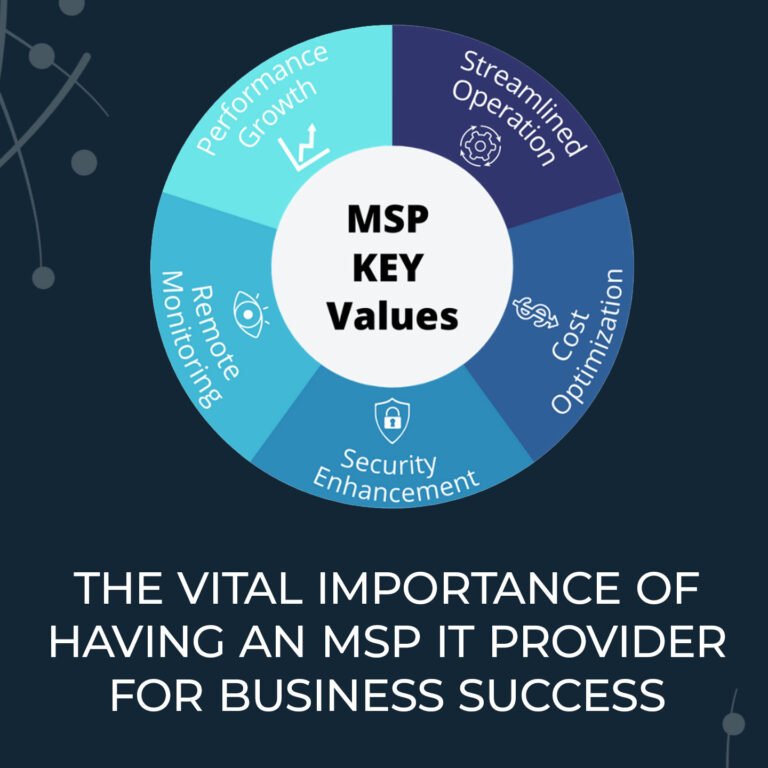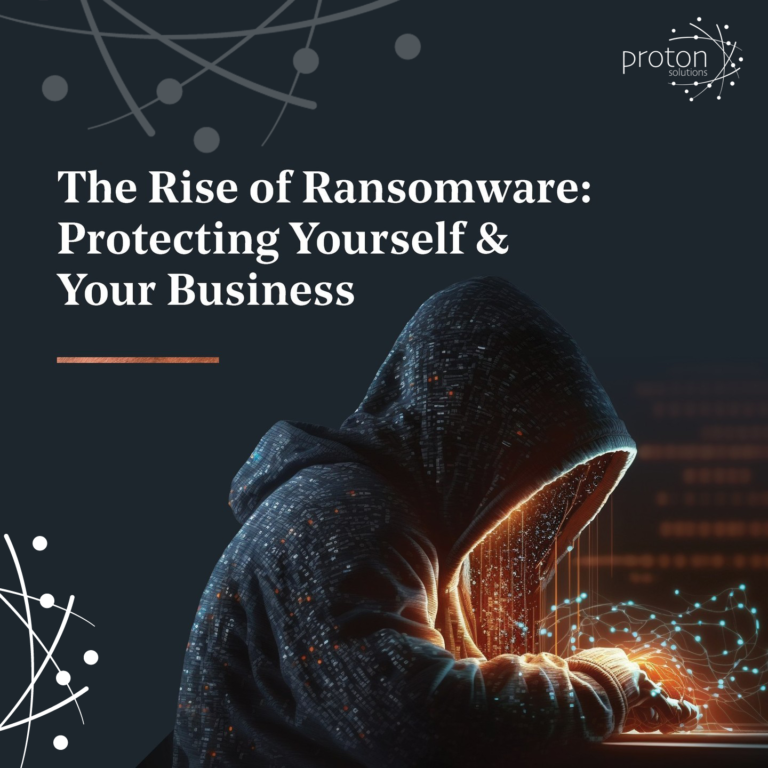Ensuring Cybersecurity Protection for Your Home Office
- Proton Solutions
- July 2, 2023

As the world increasingly embraces remote work and home offices become more prevalent, it is crucial to recognize the importance of cybersecurity protection in these environments. With sensitive data being accessed and transmitted from home networks, the risks of cyber threats have multiplied. In this article, we will explore the key considerations for maintaining robust cybersecurity protection in your home office.
1- Secure Your Home Network:
The first step towards safeguarding your home office is to secure your home network. Start by changing the default router password to a strong, unique password. Enable Wi-Fi encryption (WPA2 or WPA3) and use a strong passphrase. Regularly update your router’s firmware to patch any security vulnerabilities. Additionally, consider setting up a separate guest network for visitors to isolate them from your main network.
2- Install and Update Security Software:
Protecting your home office requires the installation and regular updating of robust security software. Invest in a reputable antivirus and anti-malware program, firewall software, and a virtual private network (VPN) for secure remote access. Enable automatic updates for all installed software to ensure you have the latest security patches and bug fixes.
3- Strong Passwords and Multi-Factor Authentication:
Employing strong passwords is vital for protecting sensitive information. Use complex passwords that include a combination of uppercase and lowercase letters, numbers, and special characters. Avoid reusing passwords across multiple accounts. Implement multi-factor authentication (MFA) wherever possible, which adds an extra layer of security by requiring additional verification, such as a fingerprint or one-time code.
4- Secure Device Usage:
Secure your home office devices by implementing a few best practices. Ensure all devices are password-protected and set them to lock after a period of inactivity. Encrypt your hard drives to protect data if your device is lost or stolen. Disable unnecessary services and features that could potentially be exploited by hackers. Regularly back up your data to an external storage device or cloud service.
5- Be Cautious of Phishing Attacks:
Phishing attacks remain a significant threat to home office cybersecurity. Be cautious of suspicious emails, text messages, or phone calls asking for personal information or login credentials. Avoid clicking on suspicious links or downloading attachments from unknown sources. Educate yourself and your family members about phishing techniques to prevent falling victim to these scams.
6- Secure Video Conferencing and Communication:
As video conferencing platforms have become the primary means of communication for remote work, it is important to secure these channels. Always use secure and up-to-date video conferencing software and ensure meetings are password-protected. Share meeting links and access codes only with authorized participants. Avoid discussing sensitive or confidential information over unsecured channels.
7- Regular Updates and Patching:
Maintaining a secure home office environment requires regular updates and patching. Enable automatic updates for your operating system, software applications, and security software to ensure you receive the latest bug fixes and security enhancements. Regularly check for firmware updates for your devices, including routers and Internet of Things (IoT) devices.
Securing your home office against cyber threats is an ongoing process that demands attention and diligence. By implementing these key measures—securing your home network, installing and updating security software, using strong passwords, being cautious of phishing attacks, and maintaining regular updates and patching—you can significantly reduce the risks to your home office’s cybersecurity. Prioritizing cybersecurity not only protects your sensitive information but also ensures the smooth functioning of your remote work environment. Stay vigilant, educate yourself and your family, and embrace a proactive approach to cybersecurity to keep your home office safe and secure.





